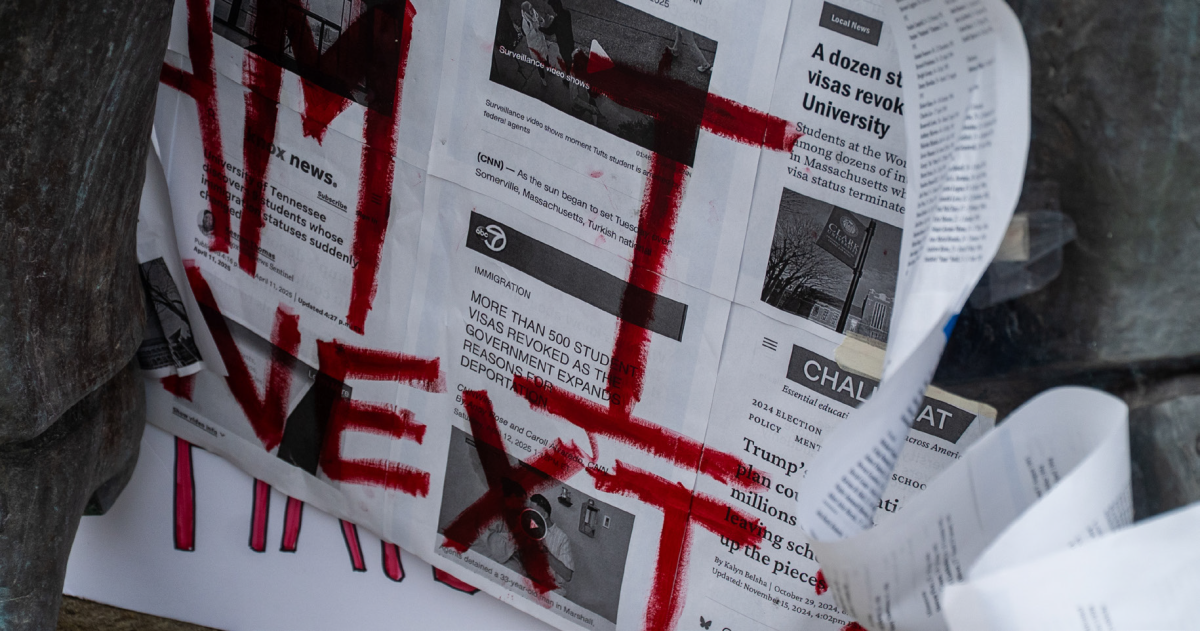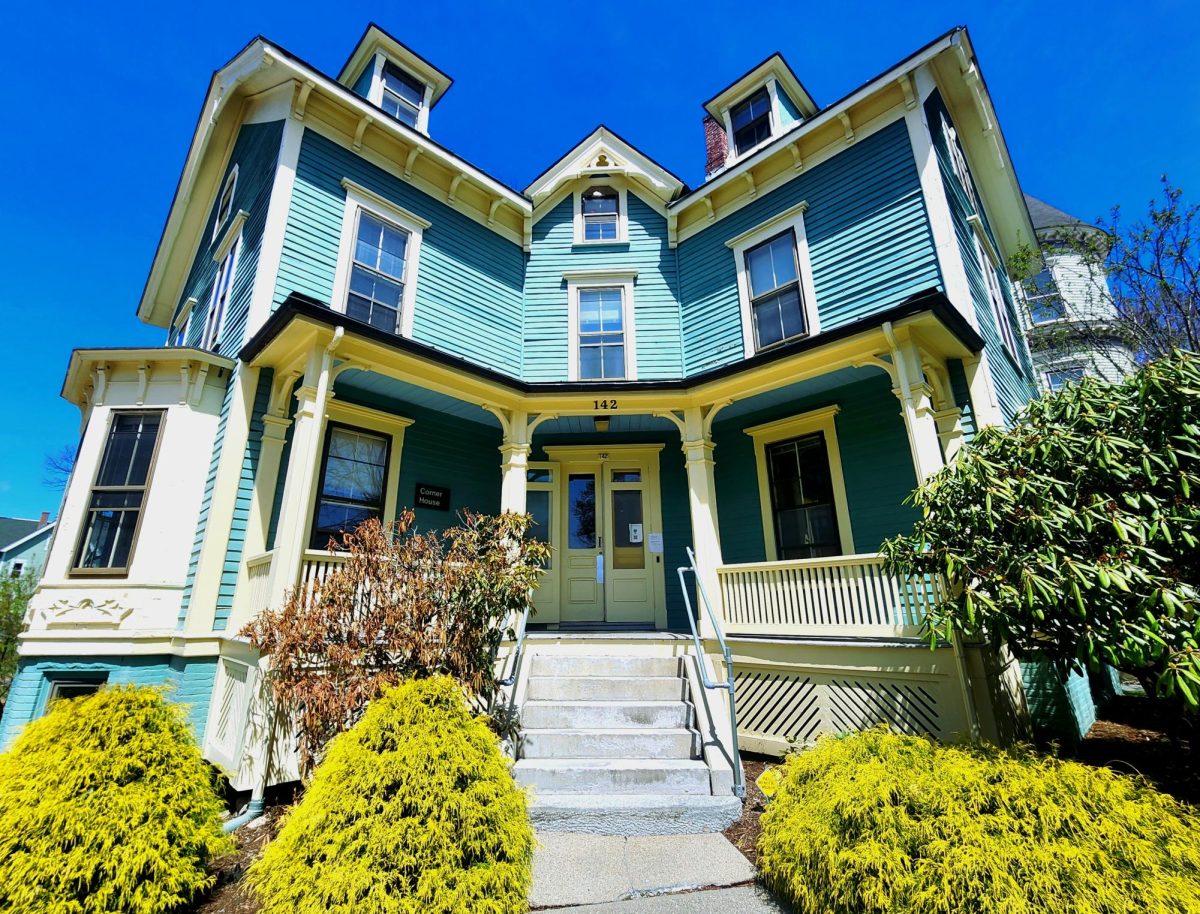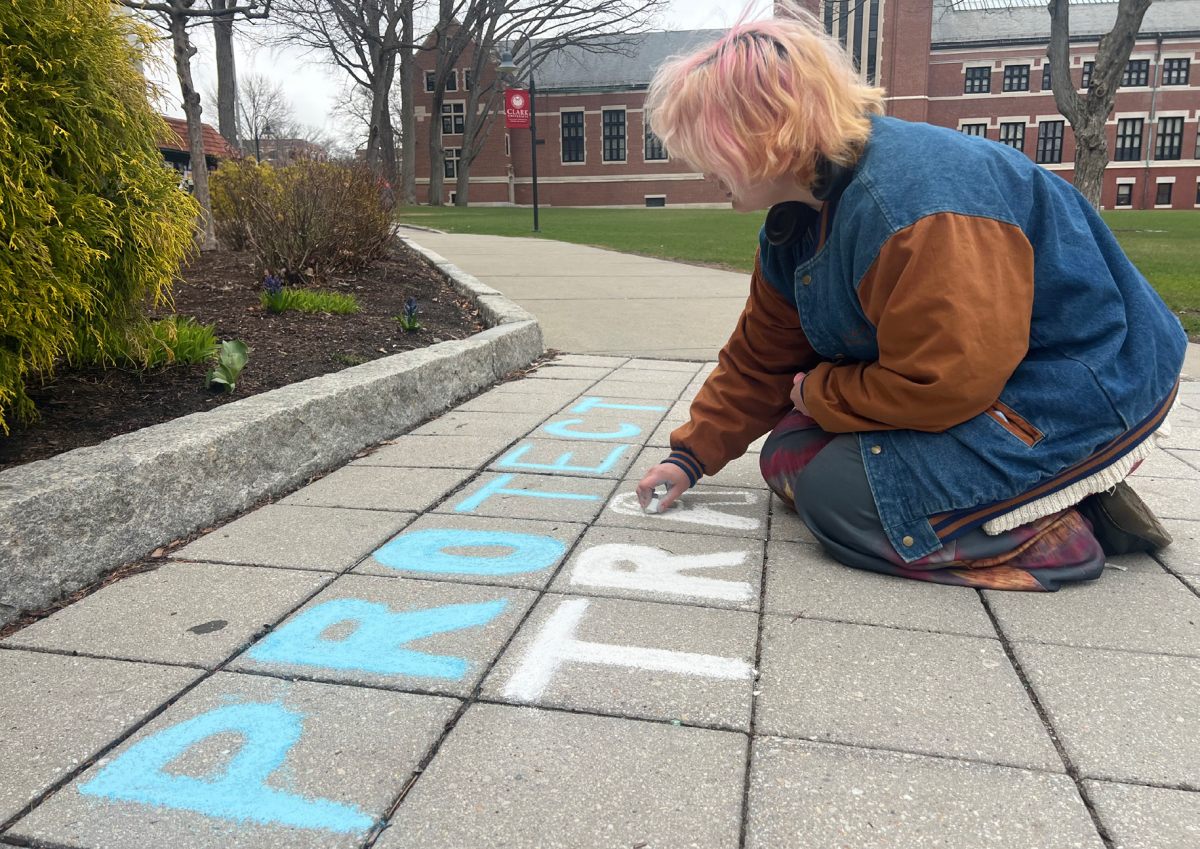In its 2024 rankings of national universities, U.S. News & World Report placed Clark University at No. 142 – a precipitous drop from its spot last year at No. 97. Clark is now in a nine-way tie for its ranking with institutions like Clarkson University, Loyola University Chicago, Oregon State, and the University of Cincinnati.
U.S. News made “the most significant methodological change in the rankings’ history” in refining its algorithm for 2024, according to The Chronicle of Higher Education.
In an explainer published with the rankings, the company’s data chiefs wrote that five “longstanding factors,” totaling in weight at 18 percent, were dropped from consideration. These included alumni giving and proportion of faculty with terminal degrees (each weighted at 3 percent), and average class size, which counted fully 8 percent towards final scores.
Four new standards are aimed at measuring an institution’s absolute capacity for research, favoring institutions that publish highly cited works.
Many large public research universities performed well in the new rankings. The University of New Hampshire, for example, rose to No. 115 from 143 last year, while UMass Lowell improved its standing by 17. Alan Blinder, reporting for The New York Times, found that “more than a dozen public universities… climbed at least 50 spots in the rankings,” in an analysis of the 2024 list.
Many of the most significant changes in rank were felt by private universities grouped in the middle of the pack, like Clark, wrote Blinder.
Three of Clark’s peers solidly within the top 100, including WPI, Brandeis, and Tufts, all saw their ranks drop. WPI fell from No. 67 to No. 82; Brandeis slipped out of the top 50, landing at No. 60. Few drops were as dramatic as that of Clark, however. UMass Amherst showed stability, retaining its spot from last year at No. 67.
The Scarlet made two requests to Clark’s Office of Marketing and Communications via the Office of the President for comment on the new rankings. A response has not yet been received.
DOES IT MATTER?
In their data explainer, U.S. News says that their rankings “should be used as a tool for discovering best fit schools… combined with personal considerations and additional resources.”
Even with this nuance, these rankings have an undeniable influence. CEO Eric Gertler acknowledged it himself in a statement on the occasion of U.S. News’ 90th anniversary, writing that the company has a social obligation to its consumers to publish its lists. He specifically cites the company’s education website, visited annually by “more than 100 million users” who “not only welcome but also benefit from our various rankings.”
That influence is not just a corporate talking point. In fact, a 2014 study published in Educational Evaluation and Policy Analysis suggested that a quantifiable link existed between high rankings for selective universities and increases in the number and geographic diversity of applications they received.
Some universities place great value on their rank. Immediately after U.S. News released its 2024 list, for example, administrators at Vanderbilt University scrambled to assure its faculty that “Vanderbilt is stronger than at any time in its history,” after falling just five places to No. 18.
In an email obtained by The Chronicle of Higher Education, Vanderbilt’s chancellor and provost protested that the drop was solely attributable to changes made by U.S. News and that these changes were “disadvantaging many private research universities while privileging large public institutions.” The administrators went on to list several “glaring” flaws in U.S. News’ algorithm, accusing its editors of “incompetence.”
Other well-publicized criticisms from within higher education came earlier this year, as many prestigious law and medical schools staged a boycott of U.S. News’ rankings by refusing to participate in the company’s surveys. Yale Law School led the charge. Soon, schools like Harvard, Stanford, and Duke followed.
Heather Gerken, Dean of Yale Law, wrote in late 2022 that the rankings “are profoundly flawed [because] they disincentivize programs that support public interest careers, champion need-based aid, and welcome working-class students into the profession.” Gerken noted that Yale Law had held the No. 1 spot as long as the ranking had existed; U.S. News began publishing annual law school rankings in 1990.
Some of the drastic changes made for the 2024 National Universities list could be viewed as an attempt to address claims of economic blind spots like those leveled by Gerken and other revolting deans. U.S. News report placing greater emphasis on graduation rates and performance for Pell recipients; two new indicators totaling 5 percent were added in the same categories for first-generation students. The weight of borrower debt was increased to 5 percent from 3. CEO Eric Gertler has insisted, though, that the rankings were not altered to appease the company’s critics, according to The New York Times.
Among all of the U.S. News ranking categories, one still holds the most weight: peer assessment, at 20 percent (only the graduation rate comes close, weighted at 16 percent for universities that submit data on standardized tests). In this category, top university executives like presidents and provosts are asked to evaluate the “academic quality” of peer institutions with which they are familiar on a scale of 1 to 5.
U.S. News reports that assessment surveys for the 2024 rankings were sent to 4,734 top executives and that just over 30 percent of the surveys were returned. The company argues that these assessments of academic reputation are important because it “factors things that cannot be easily captured elsewhere.”
Clark’s online promotional material gives little priority to U.S. News rankings. They can be found after some searching on a “fast facts” page, where the university touts its placement as a “Best Value School,” and a top-50 ranking for “undergraduate research.” The only ranking Clark includes from the national universities list is an unofficial category: universities with enrollments of 4,000 and under. Clark actually improved here, moving up one spot to No. 9, from No. 10 last year.

![Data for this graphic from: Andrew G. Reiter, “U.S. News & World Report Historical Liberal Arts College and University Rankings,” and U.S. News, “Best National University Rankings [2024.]”](https://thescarlet.org/wp-content/uploads/2023/10/rankingsgraphic-1200x495.png)


